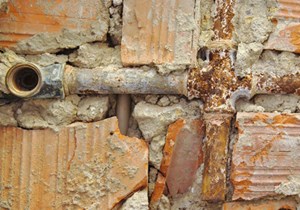Rochester, N.Y., begins $5 million lead service line replacement project
(UI) — Construction has begun on a critical drinking water project in Rochester to replace 772 residential lead and galvanized water service lines.
Supported by a $3 million Water Infrastructure Improvement (WIIA) grant from the New York State Environmental Facilities Corporation (EFC), this $5 million project is part of the city's plan to replace all lead service lines by 2030.
Governor Kathy Hochul emphasized the importance of the project, stating, "There is no safe level of lead in drinking water, and New York State continues to provide critical grants to replace lead pipes. Ensuring clean, safe water for all New Yorkers is a top priority."
The project will involve excavating and abandoning existing lead and galvanized water service lines, installing new water main taps, water service piping, and curb stops, and restoring surfaces. Following the installation, the new service lines will be flushed to ensure clean water flow.
Leveraging federal funds from the Bipartisan Infrastructure Law (BIL), New York has received $240 million for lead service line replacements. Of this, $48 million in grants and interest-free financing has been earmarked for Rochester.
"Safe drinking water is a right, not a privilege," said Maureen A. Coleman, President & CEO of the EFC. "Removing lead from service lines is crucial for delivering safe water, and we are committed to supporting communities in these vital projects."
New York State's Lead Service Line Replacement Program, funded through the State Clean Water Infrastructure Act, has already invested $30 million to identify and replace lead service lines statewide. Rochester has received over $5.6 million in WIIA grants in the last five years to improve its drinking water systems.
EPA Deputy Regional Administrator Alyssa Arcaya praised Rochester's efforts, saying, "Rochester will be a lead-free city by 2030, and federal and state infrastructure funding will help achieve that goal."
Senate Majority Leader Charles Schumer highlighted the significance of the project, stating, "Replacing toxic lead pipes is extremely expensive, but with the historic Bipartisan Infrastructure Law and additional funding from the American Rescue Plan, Rochester can now replace all lead pipes by 2030."
This initiative represents a significant investment in the city's infrastructure, ensuring reliable and safe water for residents long into the future.
Related News
From Archive

- Glenfarne Alaska LNG targets late-2026 construction start for 807-mile pipeline project
- U.S. water reuse boom to fuel $47 billion in infrastructure spending through 2035
- $2.3 billion approved to construct 236-mile Texas-to-Gulf gas pipeline
- Major water pipe break in Puerto Rico hits over 165,000 customers
- Potomac River Tunnel project enters construction phase beneath Washington, D.C.
- Pennsylvania American Water launches interactive map to identify, replace lead water service lines
- Trump's tariffs drive $33 million cost increase for Cincinnati sewer project
- Utah city launches historic $70 million tunnel project using box jacking under active rail line
- Tulsa residents warned after sewer lines damaged by boring work
- Fatal trench collapse halts sewer construction in Massachusetts; two workers hospitalized




Comments